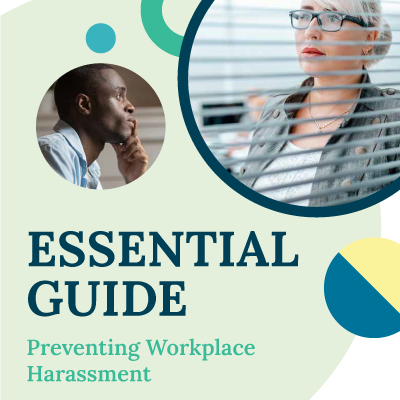SEXUAL ASSAULT & SEXUAL HARASSMENT TRAINING
Connecticut Sexual Harassment Training and The Time’s Up Act
Syntrio’s Connecticut sexual harassment training courses exceed the CT sexual harassment prevention training requirements in place since they were enacted in the early 1990s. The Connecticut workplace sexual harassment training law was expanded in 2019 by the Connecticut state legislature and CT Commission on Human Rights and Opportunities (“CCHRO”) and now requires nearly every employee in the state to receive training on the prevention of sexual harassment.
Preview the U.S. Workplace Harassment and Discrimination Training Course
6,500+ Organizations Trust Syntrio – You Can Too!













































Connecticut Harassment Training
Connecticut has been a leader in sexual harassment laws and a pioneer in the field of sexual harassment policy. By enacting the CT sexual harassment training requirements in the early 1990s, Connecticut became (along with Maine) the first two states to require sexual harassment in workplace training. Following the signing of the “Time’s Up Act” in 2019, Connecticut harassment training requirements became some of the strictest in the United States, as the state now requires almost all employers to provide two hours of sexual harassment at the workplace training to their entire workforce (absent some very limited exceptions).
To understand how to comply with CT sexual harassment training requirements, as well as other sexual harassment policy requirements in place, it is first necessary to understand federal sexual harassment law and federal anti-discrimination law, as well as the Role the United States Equal Employment Opportunity Commission (“EEOC”) sexual harassment interpretations (as well as CCHRO opinions), play in formulating a plan to comply with Connecticut online sexual harassment training obligations. Many employees in Connecticut who feel they have been sexually harassed file their claim with the EEOC, and it is that organization that often determines whether to file a lawsuit on behalf of an individual who claims they were sexually harassed or subjected to hostile environment sexual harassment or quid pro quo sexual harassment.
Syntrio’s Connecticut U.S. Workplace Harassment and Discrimination Training
- Experienced: Developing workplace harassment training since 2002.
- Compliant: Complies with all relevant Delaware regulatory requirements.
- Engaging: Engages learners with short, live-action stories and practical exercises.
- Comprehensive: Addresses all required topics plus contemporary issues – workplace relationships, bystander intervention, diversity, equity, and inclusion.
- Flexibility: Versions for managers (50 min.) and non-managers (45 min.); other versions that incorporate Delaware with additional state training for easier deployment for multi-state businesses.
- Industries: Six industry verticals, including office/general, healthcare, industrial, hospitality, retail, and higher education.
Federal Harassment Law
Federal anti-discrimination laws encompass the federal sexual harassment law, from which state and local sexual harassment requirements and mandatory sexual harassment training laws have evolved. These federal laws are also the set of statutes from the United States EEOC sexual harassment policy on enforcement are derived from. In states such as Connecticut, where sexual harassment and job discrimination charges are commonly filed administratively with the EEOC before going to court, the agency and its guidance play a pivotal role in anti-discrimination and anti-harassment litigation. The federal anti-discrimination laws prohibit employment discrimination, sexual harassment in the workplace, and other forms of workplace harassment and set the floor from which state and local laws can enact greater protections against job discrimination and workplace harassment.
The most notable federal employment law covering discrimination and harassment in the workplace is Title VII of the Civil Right Act of 1964, which covers employers who employ or have employed 15 or more employees for each working day in 20 or more calendar weeks in the current or preceding calendar year. In addition to prohibiting employment discrimination, courts have held that Title VII prohibits harassment in the workplace, sexual harassment in the workplace, hostile environment sexual harassment, and other forms of employment discrimination and workplace harassment, which in recent years has become a key focus of attention on federal anti-discrimination laws and other related employment laws (including an increased focus on mandatory workplace harassment and sexual harassment training).
Under the federal employment law scheme, harassment in the workplace is a form of job discrimination that occurs when unwelcome conduct (such as verbal sexual harassment or physical sexual harassment) that is based on race, color, religion, sex (including sexual orientation, gender identity or pregnancy), national origin, age (over 40), disability occurs. Harassment in the workplace becomes illegal where: a) enduring the offensive conduct becomes a condition of continued employment, or b) the conduct is severe or pervasive enough to create a hostile or intimidating work environment that a reasonable person would consider hostile or abusive.
As important as learning what workplace harassment is, it is also essential to understand that workplace harassment (including sexual harassment at work) does not include petty slights, annoyances, and isolated incidents. Unless severe, such trial verbal sexual comments or other offensive behavior may not rise to the level of illegal harassment in the workplace.
Connecticut Sexual Harassment Law
Connecticut has a reputation for having extremely employee-favorable employment laws. While many individuals who claim they have been sexually harassed file their sexual harassment in the workplace claim in federal court, many sexual harassment claims are brought under the Connecticut Fair Employment Practices Act, which is codified in Section 46a-60 of Chapter 814 of the General Statutes of Connecticut. The Fair Employment Practices Act is the substantive body of law in the state that prohibits employment discrimination and all forms of harassment in the workplace. The statutes also encompass the Time’s Up Act, which is the most recent revision to the CT harassment training requirements.
Importantly, Section 46a-54(15) of Chapter 814 of the General Statutes is the portion of the Connecticut anti-discrimination law and sexual harassment in the workplace law that requires all Connecticut employers with three or more employees to conduct sexual harassment in the workplace training. That section of the CT sexual harassment law gives the CCHRO the exclusive power to enact CT sexual harassment training obligations, and the law sets forth the Connecticut sexual harassment training requirements that are currently in force.
Definition and Types of Sexual Harassment in the Workplace
Connecticut’s sexual harassment law contains a precise definition, and the CT sexual harassment training requirements mandate inclusion within any training. In Conn. Gen. Stat section 46a-60(b)(8), Connecticut defines sexual harassment as:
“Any unwelcome sexual advances or request for sexual favors or any conduct of a sexual nature when:
(A) Submission to such conduct is made either explicitly or implicitly a term or condition of an individual’s employment;
(B) submission to or rejection of such conduct by an individual is used as the basis for employment decisions affecting such individual; or,
(C) such conduct has the purpose or effect of substantially interfering with an individual’s work performance or creating an intimidating, hostile, or offensive working environment.
Connecticut sexual harassment law definitions of sexual harassment encompass the two general categories of sexual harassment, which are often referred to as “hostile environment sexual harassment” and “quid pro quo sexual harassment.” Importantly, harassment in Connecticut can also occur based on any protected category and need not be restricted to individuals who feel they have been sexually harassed. As such, it is recommended that CT sexual harassment training cover such issues as race harassment to fully benefit the learner under the CT sexual harassment training requirements.

EMPLOYMENT LAW: HARASSMENT AND DISCRIMINATION COURSE
COMPENSATION AND BENEFITS
Meal & Rest Break Training
Understanding the Family Medical Leave Act (FMLA)
Wage & Hour Basics
CORRECTIVE ACTION
Avoiding Wrongful Termination
Employee Discipline
DISCRIMINATION
Employment Discrimination: Maintaining a Fair Workplace
Employment Discrimination: Sex
Employment Discrimination: Race, Color, and National Origin
Employment Discrimination: Religion
Employment Discrimination: Age
Employment Discrimination: Disability
Employment Discrimination: Sexual Orientation and Gender Identity
Creating a Bully-Free Workplace
DISCRIMINATION ETHICAL SNAPSHOTS
Festival Time
The Job Interview
Up or Out
Unpleasant News
An Open Position
HARASSMENT
U.S. Workplace Harassment and Discrimination
Bystander Intervention and Awareness and Sexual Harassment
Bystander Awareness and Intervention for Chicago
Preventing and Addressing Sexual Harassment
Preventing Sexual Harassment
Preventing Workplace Harassment
Workplace Harassment and Bullying: Managing Threats to a Respectful Work Culture
California Preventing Workplace Harassment
Connecticut Sexual Harassment Training for Employees
Delaware Preventing Sexual Harassment
Illinois Preventing Sexual Workplace Harassment
Maine Preventing Sexual Harassment
New York Preventing Sexual Harassment
Campus Aware: Sexual Violence Prevention
Harassment: Ensuring a Respectful Workplace
Preventing Unlawful Harassment for Colleges and Universities
Preventing Unlawful Workplace Harassment for Federal Agencies
Multi-Jurisdiction Preventing Workplace Harassment
Canada Harassment and Violence at Work
U.S. Workplace Harassment - Chicago
SPEAK UP ETHICAL SNAP SHOTS
Speak Up - Feeling Uncomfortable A/B
Speak Up - Harassment A/B
Speak Up - Health and Safety
Speak Up - Offensive Remark A/B
Speak Up - Something Missing
HARASSMENT ETHICAL SNAPSHOTS
The Viral Email
Jack and Dani Went Up a Hill
Third-Party Harassment
Making a Complaint
Making a Complaint 2
The Panda
Talking Sports
Unexpected Consequences
An Open Position
Workplace Disrespect?
A Very Important Client
A Very Important Client (B)
A Very Important Client (C)
Social Tony
Too Close for Comfort (A)
Too Close for Comfort (B)
Bullying
Workplace Harassment
Sexual Harassment
INVESTIGATIONS
RECRUITMENT
Legal Aspects of Interviewing and Hiring
RETALIATION ETHICAL SNAPSHOTS
Retaliation
Rocking the Boat
SUBSTANCE ABUSE
Managing Substance Abuse in the Workplace
Connecticut Sexual Assault and Harassment Training Requirements
Following the 2019 revisions to the CT sexual harassment training law, Connecticut employers have faced increased sexual harassment training obligations in the state. The following is a summary of Connecticut’s sexual harassment training requirements:
Who Must Provide Sexual Harassment at the Workplace Training?
Under CT sexual harassment training requirements, all public and private organizations with more than three employees working in Connecticut must provide training (even if the employer is headquartered outside Connecticut) within six months of starting employment.
How Frequently Must Connecticut Sexual Harassment Training be Conducted?
Connecticut sexual harassment law requires training to be updated and re-administered once every ten years. The CT Commission on Human Rights recommends that supervisors be updated on developments in the law every three (3) years.
What Workforce Segments Must Receive Training under the CT Sexual Harassment Training Requirements?
The Connecticut sexual harassment training requirements state that all persons “employed by an employer” must receive training. The sexual harassment law provides no further clarity on the meaning of the term “employed,” therefore, it is unclear whether specific segments of the workforce are subject to the mandatory CT harassment training requirements. Syntrio recommends seeking advice from Connecticut counsel to formulate a sexual harassment training plan best.
Should Employers Provide Connecticut Sexual Harassment Training to Employees Working Outside the State?
Possibly. The CCHRO recommends all employees who work in Connecticut receive training on CT sexual assault and harassment law, and the definition of “work” is not specified. This means that all employees who work or will work in Connecticut may need to receive sexual harassment in the workplace training under the Connecticut sexual harassment training requirements. As a matter of best practice, even those employees based outside of CT who will interact with CT-based employees or spend a portion of time working in CT or with CT employees should receive Connecticut sexual harassment training.
STATE-MANDATED HARASSMENT TRAINING REQUIREMENTS
Several states have enacted mandatory training laws that require employers to provide sexual harassment training to their managers and employees.
Click on each state to learn more about Syntrio’s sexual harassment training products dedicated to exceeding compliance with mandatory training laws in each state. You will also learn about the requirements in that particular jurisdiction.
What is the Minimum Duration of Workplace Sexual Harassment Training in Connecticut?
CT sexual harassment law requires training to be at least two hours long to comply with Connecticut sexual harassment training requirements.
What Content is Necessary to Comply with Connecticut Sexual Harassment Prevention Training Requirements?
The CT harassment training law requires training to be interactive and include the following elements:
- A description of sexual harassment (including examples and specific statutory provisions);
- The verbatim definition of harassment under Connecticut state and federal law;
- A description of the types of conduct that constitutes sexual harassment under CT law including, but not limited to, the fact that a victim may be a man or woman and same-sex harassment is illegal;
- Training must describe remedies available, contact information for the CCHRO, the complaint process, and the fact that individuals who commit acts of harassment may be liable for civil and/or criminal penalties.
- Training must discuss retaliation and the legal protections against this form of misconduct; and
- Employers must describe strategies to prevent sexual harassment.
The CCHRO has also recommended the following elements be included in Connecticut sexual harassment training:
Training on the seriousness of sexual harassment;
- Roleplay as a means of teaching;
- The importance of interpersonal skills; and
- The perceptual differences of situations between men and women.
The CCHRO has also stated that learners must be able to ask questions about online Connecticut sexual harassment training and must receive answers “within a reasonable period.”
Does Syntrio’s Online Connecticut Sexual Harassment Training Comply with the Connecticut Sexual Harassment Training Requirements?
Yes. Syntrio’s sexual harassment courseware exceeds the requirements set forth by the Connecticut sexual harassment training law.
What Records Must be Kept Following Completion of CT sexual harassment prevention training?
Employers must keep good records of who was trained, when the training occurred, and what was conducted.
What are the Potential Penalties for Failing to Comply with the Connecticut Sexual Harassment Prevention Training Requirements?
Under CT sexual harassment law, failing to conduct training is considered a “discriminatory act” subject to fines up to $1000.
Preview the U.S. Workplace Harassment and Discrimination Training Course

Why Syntrio’s Sexual Harassment Training is Your Best Source of Compliance with Sexual Harassment Prevention Requirements in Connecticut
Syntrio has been the leader in online sexual harassment training for over 20 years.
Since its inception in the workplace sexual harassment training market over 20 years ago, Syntrio has been aware that it needs to be different to help employers not only comply with Connecticut sexual harassment training requirements but also to help employers empower their workforce to speak up and make an actual difference in workplace culture. The first anti-harassment training laws were enacted in CT and ME in the early 1990s when Syntrio began developing content intended to assist employers in educating their workforces on employment law, workplace harassment, and employment discrimination. As the 2010’s ended, more states enacted (and expanded upon) sexual harassment training laws, and Syntrio’s sexual harassment prevention training remains the sexual harassment prevention training relied upon by lawyers and HR professionals seeking training that will truly make a difference.
The Syntrio approach to Connecticut Sexual Harassment Prevention Training is Different.
While the drive to provide sexual harassment training remains unchanged, expert views on the type and focus of sexual harassment training in workplace training have evolved. Many of Syntrio’s competitors continue to provide “check the box” sexual harassment prevention training in CT (and elsewhere) that was primarily developed more than five years ago. These older harassment training programs are often aimed at combating the harmful effects of workplace sexual harassment on the organization rather than on the person making the complaint. When anti-harassment training focuses on illegal sexual harassment and job discrimination and how companies can avoid liability rather than actual incident prevention and improve workplace culture, employees are proven more likely to tune out during the session. Syntrio knows legalistic, compliance-focused training does not resonate with employees and has instead developed sexual harassment prevention training that works.
The solutions that help to improve workplace culture and help reduce the number of incidents of workplace harassment involve incorporating elements of a full-scale program of civility and respect training and any other number of employee-focused employment law training that time and budget will allow improving organizational culture. Syntrio understands the time and budgetary constraints and therefore builds in elements of its more extensive library to its sexual harassment prevention training to give the learner something they can use for their benefit (and mental and physical well-being).
Syntrio knows that in a crowded market is essential to provide training that does more than comply with Connecticut sexual harassment training requirements. As decision-makers, you must also clarify to your workforce that you care about their well-being. Therefore, a speak up and listen up a program aimed at empowering your workforce to report incidents is a critical aspect of any CT sexual harassment training program and is an essential aspect of a cultural improvement plan. Additionally, employers must provide training that teaches employees to respect one another and demonstrates the organization’s respect for its workforce. In addition to understanding what illegal sexual harassment is, employees must understand one another’s sensitivities and the organization’s understanding that everyone has individual needs. Syntrio’s Connecticut sexual harassment prevention training meets all these lofty goals in a concise package.
HARASSMENT PREVENTION RESOURCES





